15th Sunday in Ordinary Time Year A
Sunday July 12, 2026
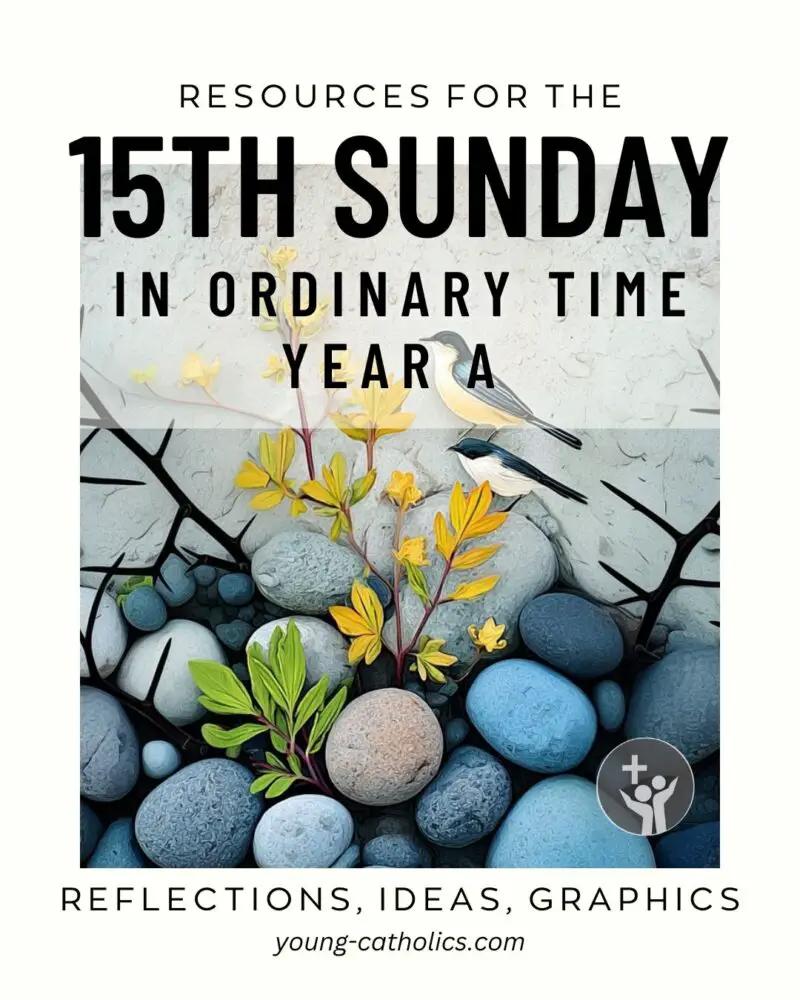
Seeds of God’s Promise
The 15th Sunday in Ordinary Time Year A invites us to think about how God’s word works in our lives. Each reading uses simple images from the world around us. Rain, seeds, soil, and harvest all show how God’s word brings life and hope. These readings remind us that God always works with purpose.
In Isaiah, we hear how God’s word is like rain that makes the earth fruitful. Paul tells us in Romans that creation itself longs for freedom and shares in our hope. In the Gospel, Jesus uses the parable of the sower to teach us that our hearts must be ready to receive God’s word.
On the 15th Sunday in Ordinary Time Year A, these passages come together to remind us that God’s plan is certain. His word nourishes us, even when life feels dry or hard. With open hearts, we can grow strong in faith and bear much fruit.
Mass Readings for the 15th Sunday in Ordinary Time Year A
- First Reading – Isaiah 55:10-11: The Lord’s word is likened to rain that nourishes the earth, promising that it will accomplish its intended purpose without returning void.
- Responsorial Psalm – Psalm 65: You enrich the land, making it fruitful. Your generosity fills the year with abundance, causing fields and valleys to flourish and sing with joy.
- Second Reading – Romans 8:18-23: Current sufferings are minimal compared to the future glory awaiting God’s children. All creation yearns for this liberation and shares in the anticipation of redemption.
- Gospel – Matthew 13:1-23: Jesus shares a parable about a sower who scattered seeds, symbolizing the spreading of God’s word. The seeds fell on different types of soil, representing various responses to the message. Some seeds produced abundant fruit, while others were hindered by thorns, rocky ground, or birds. Jesus explains the meaning of each element, highlighting the importance of receptive hearts for the growth and understanding of God’s teachings.
The readings above are for lectionary cycle A. For other years see the links below:
15th Sunday in Ordinary Time Year B
15th Sunday in Ordinary Time Year C
But the seed sown on rich soil is the one who hears the word and understands it, who indeed bears fruit and yields a hundred or sixty or thirtyfold.
Matthew 13:23
Themes for the 15th Sunday in Ordinary Time Year A
The readings for the 15th Sunday in Ordinary Time Year A focus on God’s word and how people receive it. They remind us that God’s message is meant to bring life, but it requires open hearts to grow.
- Power of God’s Word: God’s word is like rain that nourishes the earth. It always fulfills its purpose, just as the first reading says.
- Fertile Hearts and Faith: The parable of the sower shows that people respond to God in different ways. A heart that is open and willing to listen will grow in faith.
- Challenges to Faith: Some people struggle to hold on to God’s message. Distractions, worries, and hardships can keep faith from growing.
- Hope in Future Glory: The second reading reminds us that present struggles are small compared to the joy that will come. This hope helps believers stay strong.
- God’s Generosity in Creation: The psalm describes the beauty and richness of the earth. It reflects how God provides and blesses those who trust in Him.
- Call to Listen and Understand: Jesus explains that not everyone truly listens to God’s word. Understanding takes effort and a desire to grow.
God’s word is always working, but people must be ready to receive it. The 15th Sunday in Ordinary Time Year A calls us to trust, listen, and let faith take root.
Resources for the 15th Sunday in Ordinary Time Year A
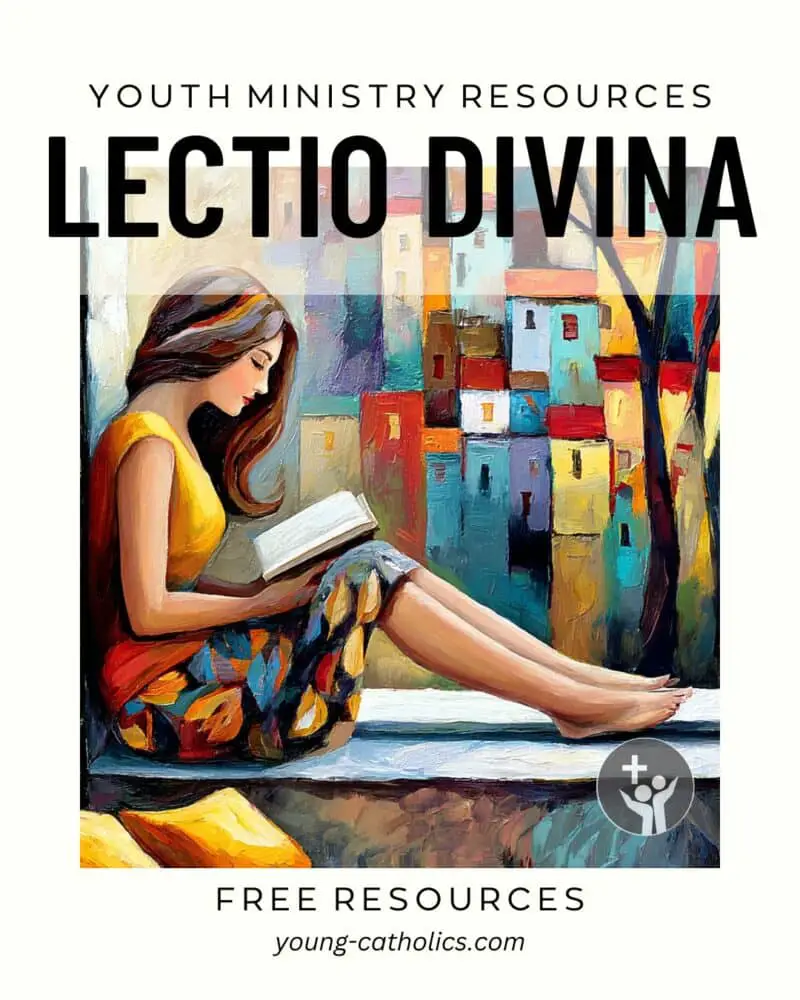
Lectio Divina
On the 15th Sunday in Ordinary Time Year A, we can consider the practice of Lectio Divina. Lectio Divina invites us to receive the Word of God with open hearts and minds. In this ancient spiritual practice, we read and meditate on the sacred text, allowing it to penetrate the depths of our being.
Like the seeds that fell on good soil, Lectio Divina cultivates the fertile ground of our souls, nurturing the growth of God’s wisdom within us. Through careful reflection, we can discern the ways in which the divine Word takes root, bears fruit, and transforms our lives, enabling us to become true disciples of Christ.
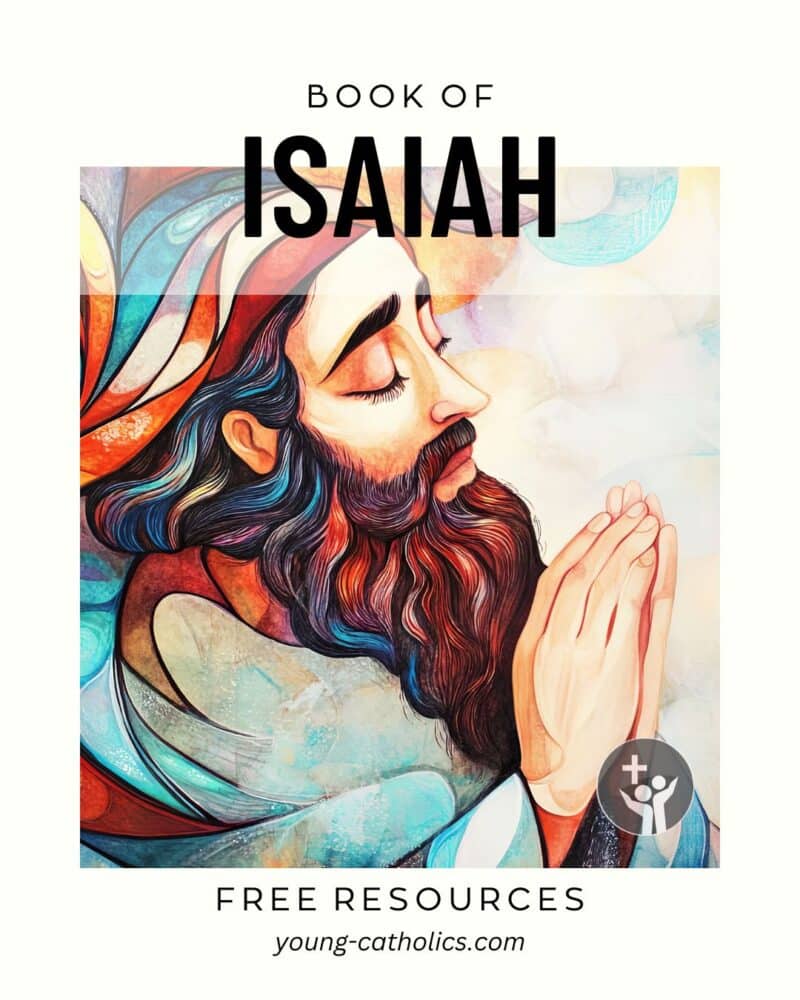
The Book of Isaiah: Rain That Brings Life
In Isaiah, the image of rain shows how God’s word always brings results. Just as rain nourishes the soil, His word nurtures the people. This passage reflects Isaiah’s larger theme of God’s promises being certain. On the 15th Sunday in Ordinary Time Year A, it reminds us that God’s plan is never wasted.
This part of Isaiah points to hope for a people in exile. The prophet assures them that God’s word will not fail, no matter how hard life feels. The bigger message in Isaiah is trust in God’s faithfulness and the certainty of His salvation.
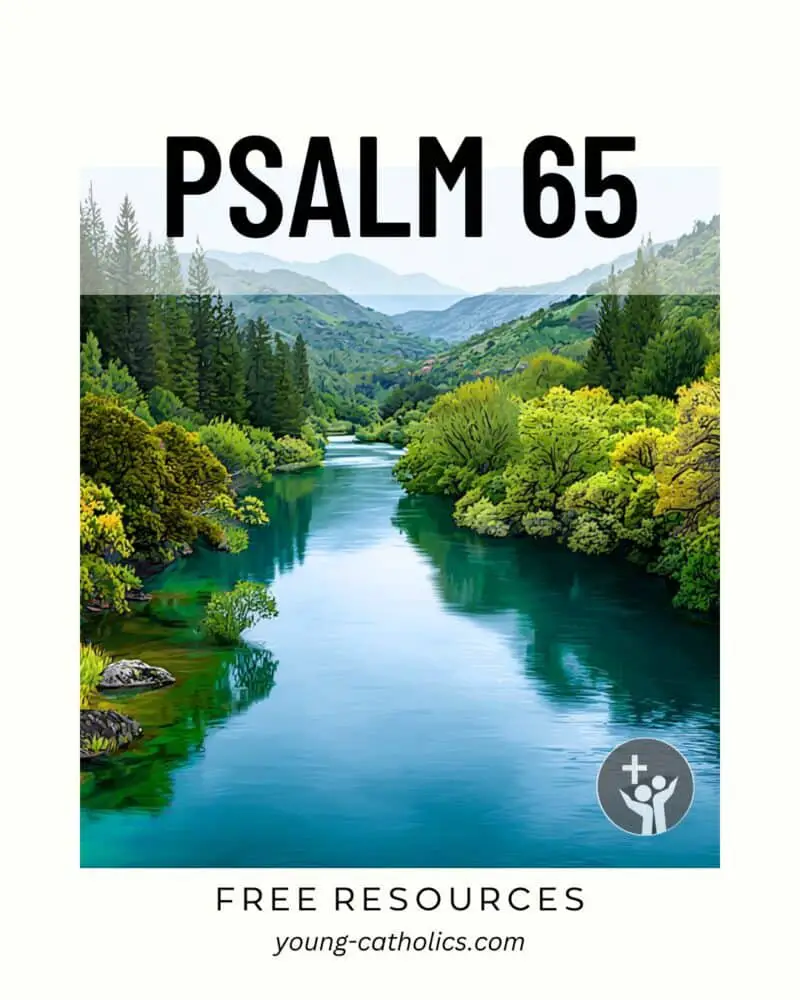
Psalm 65: A Land Filled with Praise
Psalm 65 celebrates God’s care for the earth. Rain, crops, and fruitful fields show His goodness to creation. On the 15th Sunday in Ordinary Time Year A, this psalm fits with the theme of God’s word bearing fruit, much like fields filled with grain. The psalmist praises God for His abundant gifts.
The psalm shows how all creation joins in worship. Valleys, meadows, and hills rejoice because God provides. This reflects a theme found throughout the psalms: God’s generosity calls for gratitude. Human voices join with nature in giving thanks.
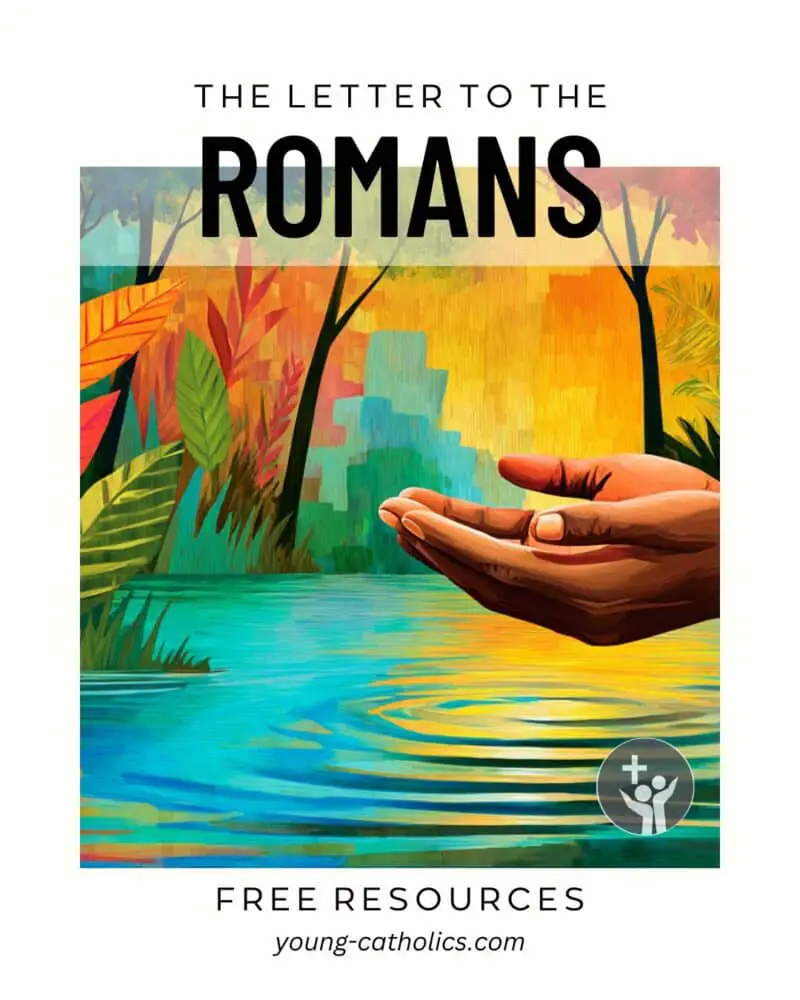
The Letter to the Romans: Groaning Toward Glory
Romans 8 shows Paul speaking of suffering and hope. On the 15th Sunday in Ordinary Time Year A, Paul tells us present pain is small compared to future glory. He shows that God’s plan includes not only people but all creation, which waits for renewal.
This fits Paul’s larger theme of salvation through Christ. He describes God’s children as sharing in Christ’s glory. Creation itself longs for freedom, showing how wide God’s redemption is. Paul invites the faithful to hold firm in hope.

The Gospel of Matthew: Seeds of the Kingdom
In Matthew 13, Jesus teaches through a parable about a sower. On the 15th Sunday in Ordinary Time Year A, this story shows how people respond differently to God’s word. Some reject it, some accept it shallowly, and some let it grow deep and bear fruit.
This parable fits Matthew’s focus on the Kingdom of Heaven. The Gospel often shows how God’s reign takes root in unexpected places. The good soil represents hearts ready to hear and live the teaching of Jesus.
Homilies and Commentaries for the 15th Sunday in Ordinary Time Year A
Parable of the Sower: The Word of God and the Soil
In this reflection for the 15th Sunday in Ordinary Time Year A, Jeff Cavins discusses the parable of the sower. Jesus describes the different types of soil: the path, rocky ground, thorny ground, and good ground. These represent the receptiveness of our hearts to God’s word. Cavins emphasizes the importance of truly listening to the word of God, not just hearing it superficially. By understanding and truly receiving the word, we can bear much fruit. Cavins encourages listeners to focus their hearts during Mass and to deepen their connection with the word of God.
Ways to Read the Bible
Fr. Mike Schmitz reflects on the various ways people approach reading the Bible. Initially, it may be seen as a collection of captivating stories from childhood. As we grow older, we may seek inspiration from the Bible’s quotes but find that not all passages are inspiring. Some turn to it as an answer book for guidance but often feel unsatisfied.
Fr. Mike explains that while the Bible contains different genres, it always conveys truth. He encourages adult readers to engage both heart and intellect, recognizing human authors used by God to convey divine truths. By embracing the richness of God’s word, we can find truth in its message of salvation.
A Sower Went Out to Sow
A homily for the 15th Sunday in Ordinary Time Year A from Bishop Robert Barron. “God is a farmer who sows the seed of his love liberally, on good and bad soil, to saint and sinner alike. There is no limit to God’s willingness to save. If we are the least bit cooperative, the grace of God will cause life to spring up in us thirty, sixty, or a hundred fold.”
The Word’s Return
A reflection on the 15th Sunday in Ordinary Time Year A from Scott Hahn. “Today’s readings, like last week’s, ask us to meditate on Israel’s response to God’s Word—and our own. Why do some hear the word of the kingdom, yet fail to accept it as a call to conversion and faith in Jesus? That question underlies today’s Gospel, especially.”
The Word That Accomplishes Its Purpose
Another homily from Bishop Barron for the 15th Sunday in Ordinary Time Year A. “This week, we hear from the book of the prophet Isaiah, and the theme of this short passage is the Word of God. How wonderful that we are hearing one of the greatest speakers of the Word precisely on this topic. How central to ancient Israelite religion was the Word! Biblical Israel knew itself to be a people to whom God uniquely had spoken.”
Reflection for the 15th Sunday in Ordinary Time Year A
The 15th Sunday in Ordinary Time Year A invites us to reflect on how we receive God’s word. The readings use images of rain, soil, and growth to show the power of His message. God’s word is meant to bring life, but it requires open hearts. Some may struggle to accept it, while others allow it to shape their lives. These reflections help us think about our own faith journey and how we can grow closer to God.
The Power of God’s Word
The first reading for the 15th Sunday in Ordinary Time Year A compares God’s word to rain that nourishes the earth. Just as rain makes plants grow, God’s word brings life and change. It is not empty or wasted but always accomplishes what God intends. This reminds us that when we listen to His word, it has the power to shape our lives.
Sometimes, people hear God’s word but do not allow it to take root. Distractions, doubts, or fear can keep it from growing in their hearts. But just as rain softens dry ground, God’s word can soften hearts that are closed off. If we let it, it can change our thoughts, actions, and the way we see the world.
God’s word is not just for individuals. It spreads like rain over the whole world, bringing life to those who accept it. It calls people to love, to seek justice, and to trust in God’s plan. This means that every person has a part in making the world more like God wants it to be.
The 15th Sunday in Ordinary Time Year A invites us to reflect on how we receive God’s word. Do we allow it to shape us, or do we ignore it? If we open our hearts, it will lead us toward truth, goodness, and peace.
Struggles and Hope in Faith
The second reading for the 15th Sunday in Ordinary Time Year A speaks about suffering and hope. St. Paul says that the struggles of this life are small compared to the glory that is coming. He compares the world’s pain to the pains of childbirth, showing that something greater is being prepared.
Faith is not always easy. People face challenges, doubts, and moments of weakness. Sometimes, it may feel like God is far away. But just as a woman in labor endures pain for the joy of new life, believers must endure difficulties with hope. God is working, even when it is hard to see.
Creation itself is waiting for renewal. Paul reminds us that all things will one day be made new. This promise gives strength to those who are tired or discouraged. The suffering of the present is temporary, but God’s promises last forever.
The 15th Sunday in Ordinary Time Year A encourages patience and trust. The road to faith is not always smooth, but God is with His people. In the end, those who remain faithful will share in His glory.
Preparing Our Hearts for God’s Word
The Gospel for the 15th Sunday in Ordinary Time Year A tells the parable of the sower. Jesus describes different kinds of soil, showing how people respond to God’s message. Some are open and ready, while others are distracted or unprepared. This parable helps us reflect on the state of our own hearts.
Some people hear God’s word but do not understand it. Like seeds on a path, the message is quickly lost. Others accept it but give up when difficulties arise. They have no strong roots. Some start with good intentions, but worries and desires choke their faith, like thorns growing among the plants.
The best soil is rich and ready. It allows the seed to take root and grow. This represents those who listen to God’s word, take it seriously, and live by it. Their faith grows, and they produce good fruits of love, kindness, and truth.
The 15th Sunday in Ordinary Time Year A reminds us to prepare our hearts for God’s word. Are we listening? Are we allowing faith to grow? When we make space for God, His word will take root and bear fruit in our lives.
God speaks to each person in different ways, but the message is always meant to bring life and hope. The 15th Sunday in Ordinary Time Year A reminds us to listen, trust, and prepare our hearts. When we allow God’s word to take root, it will grow and bear fruit in our lives.
Prayer
Lord, open my heart to Your word. Help me to listen, understand, and follow Your truth. Remove anything that keeps me from growing in faith. Give me the strength to endure struggles and the patience to trust in Your plan. May my life bear good fruit that brings glory to You. Amen.
Reflection Questions for the 15th Sunday in Ordinary Time Year A
- How do I respond when I hear God’s word?
- What distractions keep me from fully accepting God’s message?
- When have I felt that my faith was growing strong?
- What challenges have made it hard for me to trust in God?
- How can I prepare my heart to receive God’s word?
- What areas of my life need renewal and change?
- How do I see God working even in times of struggle?
- What does it mean to let faith take deep root?
- How can I help others grow in their faith?
- What steps can I take to become more open to God’s teachings?
Social Media Graphics and Bulletin Artwork for the 15th Sunday in Ordinary Time Year A
If you would like an image to be made available as a specific product (card, poster, mug, etc.) or as an extra high resolution image for personal use just post a comment about what you want and we will create a link to our online store for you.
Seeds Among Thorns and Stones

This image for the 15th Sunday in Ordinary Time Year A captures the parable of the sower in a vivid way, showing the struggle of seeds among thorns and rocky soil.
It is a wonderful resource for reflecting on how God’s word takes root in different hearts. You can download this image for use in parish bulletins, newsletters, or teaching materials.
Paid subscribers may download a large copy this digital artwork without watermarks, suitable for use in bulletins, social media, newsletters, etc., free of charge by clicking here. You must be logged in as a paid subscriber to access the file.
Only current paid subscribers have the rights to use the artwork.
Witnesses do not lose themselves in words, but rather they bear fruit. They do not complain about others and the world, but start with themselves. They remind us that God is not to be proven, but shown; not announced with proclamations but witnessed by example.
Pope Francis
Music Suggestions for the 15th Sunday in Ordinary Time Year Aw
- All Good Gifts by Lamar Alford
- All of Creation by MercyMe
- All Creation Sing Alleluia
- Ancient Words by Michael W. Smith
- For the Beauty of the Earth
- God Is Still Speaking by Marty Haugen
- Go Out In the World by Ed Bolduc
- In Labor All Creation Groans by Bifrost Arts
- O Word of God by Ricky Manalo
- Praise to You, O Christ, Our Savior by Bernadette Farrell
- Seed, Scattered and Sown
- Sent Forth by God’s Blessing by Omer Westendorf
- Unless a Grain of Wheat Shall Fall by Bernadette Farrell
- The Seed That Falls on Good Ground by Stephen DeCesare
- Word of God by Bernadette Farrell
- Word of God by David Gentiles
- Word of God Speak by MercyMe
Questions and Answers for the 15th Sunday in Ordinary Time Year A
Why does the first reading compare God’s word to rain?
Rain gives life to the earth and helps plants grow. In the same way, God’s word brings life and helps people grow in faith.
What does it mean when the reading says God’s word will accomplish its purpose?
God’s word is not empty or wasted. It always brings change in those who receive it with open hearts.
Why does the Gospel for the 15th Sunday in Ordinary Time Year A focus on different types of soil?
The soil represents different ways people respond to God’s message. Some ignore it, some accept it but fall away, and some let it grow in their hearts.
What can I do to be like the good soil?
You can listen carefully to God’s word, take it seriously, and live by it. Prayer, trust, and following God’s teachings help faith grow strong.
Why does Jesus say some seeds are choked by thorns?
The thorns represent worries, distractions, and selfish desires. When people focus too much on these things, their faith does not grow.
How does the second reading for the 15th Sunday in Ordinary Time Year A bring hope?
It reminds believers that present struggles are small compared to the joy that will come. Even when life is hard, God is preparing something greater.
Why does Paul compare suffering to labor pains?
Labor pains are painful but lead to new life. In the same way, the struggles of faith are difficult but lead to something better.
How can I stay strong when faith feels difficult?
Trust in God, pray, and remember that struggles are temporary. Staying close to God helps you keep going.
What does the psalm teach about God’s care?
The psalm describes how God provides for the earth and makes it fruitful. This reminds us that He also cares for us and gives us what we need.
How can I apply the lessons of the 15th Sunday in Ordinary Time Year A to my life?
You can reflect on how you receive God’s word and try to be more open to it. You can also trust in God’s care and stay strong in faith even when life is hard.
God’s Word Brings Life
The 15th Sunday in Ordinary Time Year A focuses on how people receive God’s word. The first reading compares God’s word to rain that nourishes the earth. It reminds us that God’s message always has a purpose and brings life.
The Gospel tells the parable of the sower. Jesus describes different types of soil where seeds fall, showing how people respond to God. Some receive the word with joy, but worries or distractions keep it from growing. Others accept it fully and produce good fruit.
The second reading speaks about hope. It reminds us that the struggles of life are small compared to the glory that is coming. The psalm praises God for making the earth rich and fruitful. These readings show that faith can grow when hearts are open.
Your Turn
The 15th Sunday in Ordinary Time Year A is a chance to think about how we receive God’s word. Are our hearts open, or are we distracted by worries and other concerns? The readings encourage us to trust in God and let faith grow.
Take a moment to reflect on these readings. What stands out to you? Share your thoughts in the comments and join the conversation.

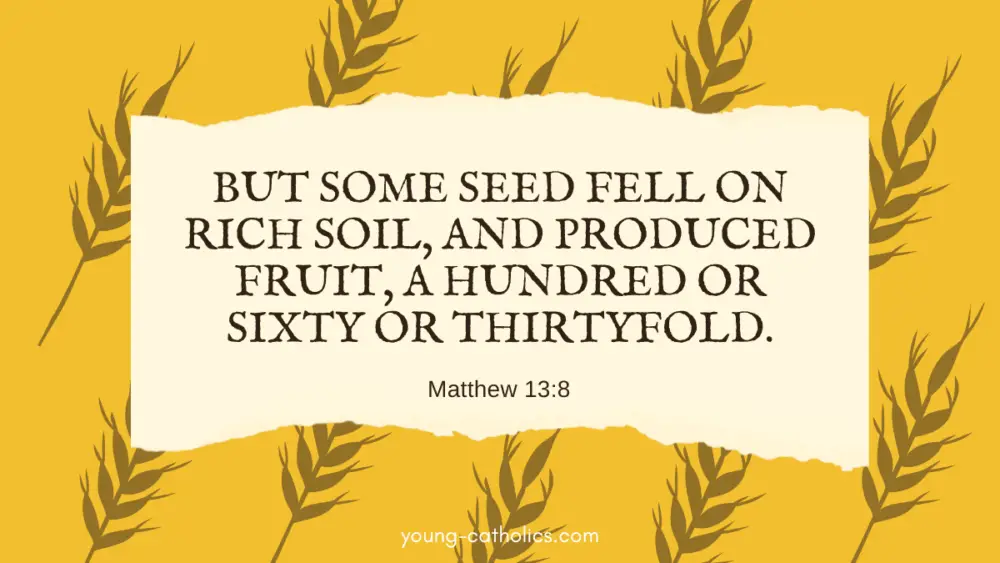
Leave a Reply